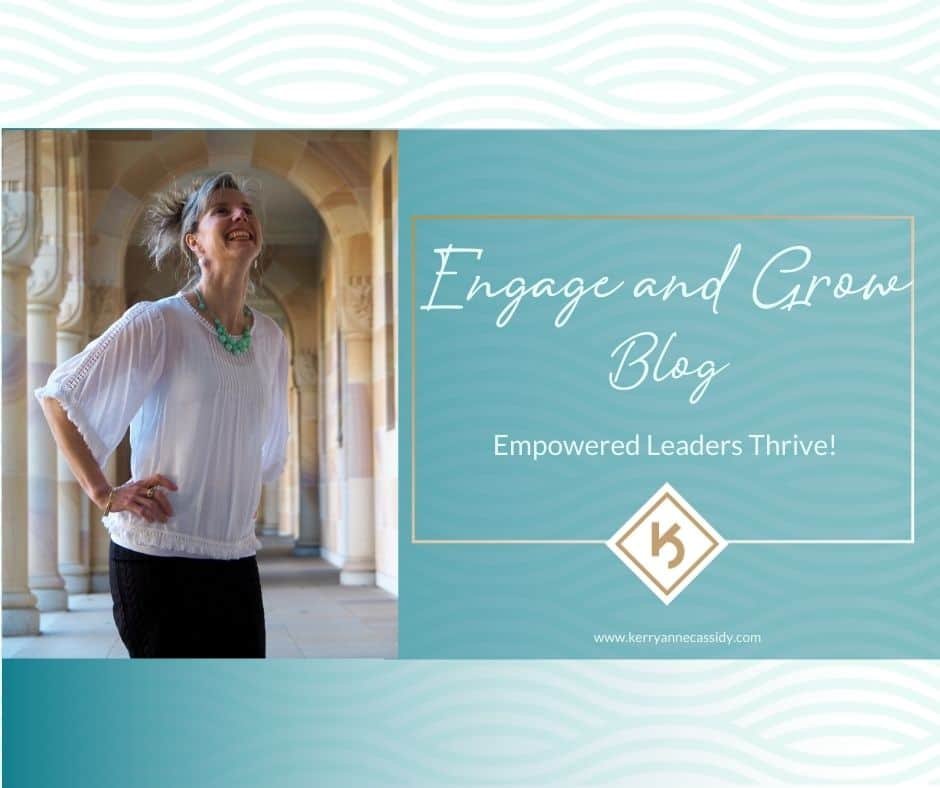For many, many years, we all thought and were told that you had to have a high IQ in order to get ahead in the world of work. Emotional intelligence was an unknown word and no one discovered how to develop it.
That all changed in 1995 when Daniel Goleman released his first book on Emotional Intelligence called: “Emotional Intelligence – Why it can matter more than IQ”
Since then, countless scholars, scientists, doctors and business people have been studying and learning more and more about emotional intelligence its influence on success.
In my experience, difficult people are merely triggers to the emotional work that we need to pay attention to in our own lives.
WHAT EXACTLY IS EMOTIONAL INTELLIGENCE ANYWAY?
Emotional intelligence is the ability to recognise your emotions, understand what they’re telling you, and realise how your emotions affect people around you. Emotional intelligence also involves your perception of others: when you understand how they feel, this allows you to manage relationships more effectively.
Daniel Goleman expanded on Howard Gardner’s book on the original 9 Multiple Intelligences and zoned in on 2 of these Multiple Intelligences, the inter and intrapersonal intelligences to develop his theory on Emotional Intelligence.
** It may be interesting to note that the educational system has traditionally only focused on linguistic and mathematical intelligences which leaves those whose strengths lie in the other intelligences to arguably focus on areas that they have no interest, capacity or strength in…
Emotional Intelligence is broken into 2 components:
- Personal Competence which focuses on the self
- Relational Competence which focuses on others
And, both of these competencies are broken down into 2 further components as follows:
Personal Competencies
Self Awareness: how well you know yourself in comparison to how other’s perceive you
Self Control: how well you manage yourself and your emotions and actions
Relational Competencies
Awareness of Others: and includes how aware you are of others’:
- Emotions
- Needs
- Expectations
- Strengths
- Weaknesses
- Preferences
- Values
Building Relationships: how we utilise our awareness of others to maximise their potential and our relationship
Check out Daniel Goleman's talk on the "Art of Managing Emotions" to grab some extra ideas
WHAT’S ALL THE FUSS ABOUT EMOTIONAL INTELLIGENCE?
You may have heard about the push to grow more emotionally intelligent leaders but you may not know the science and facts behind why companies are looking to increase their emotional quotient.
Let’s take a quick look at 3 reasons why there is so much fuss….
REASON NUMBER 1:
Studies have shown that people with average Emotional Intelligence outperform those with the highest IQ's, 70% of the time.
TalentSmart (a premier provider of emotional intelligence tests and training) tested emotional intelligence alongside 33 other important workplace skills, and found that emotional intelligence is the strongest predictor of performance, explaining a full 58% of success in all types of jobs.
The key point: emotional intelligence is the single biggest predictor of performance in the workplace and the strongest driver of leadership and personal excellence.
REASON NUMBER 2:
Travis Bradberry, co-author of the book, Emotional Intelligence 2.0 wrote in a recent article:
90% of top performers are high in emotional intelligence. On the flip side, 20% of bottom performers are high in emotional intelligence.
The key point: it is highly unlikely that you can be a top performer without a high degree of emotional intelligence!
REASON NUMBER 3:
Those with a high degree of emotional intelligence also make more money—an average of $29,000 more per year than people with a low degree of emotional intelligence. The link between emotional intelligence and earnings is so direct that every point increase in emotional intelligence adds $1,300 to an annual salary. These findings hold true for people in all industries, at all levels, in every region of the world.
Companies who invest in training and upskilling their people in Emotional Intelligence see a HUGE return on their investments, with up to as high as a 1000 percent in additional revenue, improved customer service and improved decision-making.
Key Point: Leaders with higher EQ positively affect both their own AND their companies’ bottom-line profit and that’s good for everyone!
Get My Free Course
Fast-Track Your Leadership Success with my FREE CoURSE: the Emotional Intelligence imperative for leaders

HOW CAN I DEVELOP AND GROW MY EMOTIONAL INTELLIGENCE?
The great news about Emotional Intelligence is that it can be learnt and developed, no matter how old you are.
UNDERSTANDING THE LIMBIC SYSTEM AND THE RATIONAL BRAIN

We experience a constant stream of emotional responses, with around 27 emotions for each waking hour of the day. That equates to approximately 456 emotional experiences each day.
According to Bradberry and Greaves (2009) our brains are hard-wired towards emotions, not reason.
Information is transformed into electrical signals by our senses and then travels through our body to our brain. Essentially, information enters through the spinal cord, travels through the limbic system and then arrives at the frontal lobe of the brain. The problem is that the limbic system is the emotional part of the brain so the information travels first through this area which often results in us experiencing a series of feelings which influences us to REACT before having time to THINK things through.
It is not possible to stop yourself from feeling. But, it is possible to influence the emotional through the rational side of our brain. When Emotional Intelligence was first discovered, it was considered the missing link.
Research shows that while IQ is static, EQ is adaptable. No matter where you score on the EQ scale, you can always improve and grow your EQ which means you can improve your success rate in the workplace.
WHERE DO I START?
Self-Awareness
- Understanding your strengths and weaknesses
- Taking regular time-outs to pause and reflect on your thoughts and behaviour and the implications on your results
Self-Control
- Identify your values
- Recognise your button pushers and symptoms of emotional reactions
- Practise regulating your emotions and reactions
Awareness of Others
- Develop empathy
- Pay attention to body language
- Recognise and Respond to other people’s feelings
Building Relationships
- Learn conflict resolution
- Improve your communication skills
- Recognise and give positive feedback
It is interesting to note however, that even with all the studies to show how important EQ is in determining performance and success, to date, tests measuring EI have not replaced IQ tests as a standard metric of intelligence. We are left to wonder why that could be….
Questions to Consider:
How have you / could you use Emotional Intelligence to increase personal and team performance?
Have you got any stories about emotional intelligence in your workplace, please share them in the comments section below…
Until next time, I will see you at the top!

Get My Free Course
Fast-Track Your Leadership Success with my FREE CoURSE: the Emotional Intelligence imperative for leaders




